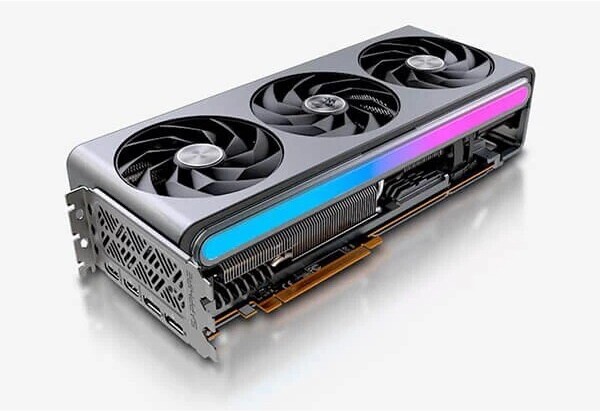- Joined
- Dec 25, 2020
- Messages
- 8,926 (5.38/day)
- Location
- São Paulo, Brazil
| Processor | 13th Gen Intel Core i9-13900KS |
|---|---|
| Motherboard | ASUS ROG Maximus Z790 Apex Encore |
| Cooling | Pichau Lunara ARGB 360 + Honeywell PTM7950 |
| Memory | 32 GB G.Skill Trident Z5 RGB @ 7600 MT/s |
| Video Card(s) | Palit GameRock OC GeForce RTX 5090 32 GB |
| Storage | 500 GB WD Black SN750 + 4x 300 GB WD VelociRaptor WD3000HLFS HDDs |
| Display(s) | 55-inch LG G3 OLED |
| Case | Cooler Master MasterFrame 700 benchtable |
| Audio Device(s) | EVGA NU Audio + Sony MDR-V7 headphones |
| Power Supply | EVGA 1300 G2 1.3kW 80+ Gold |
| Mouse | Microsoft Classic IntelliMouse |
| Keyboard | IBM Model M type 1391405 |
| Software | Windows 10 Pro 22H2 |
| Benchmark Scores | I pulled a Qiqi~ |
Disregarding workstation and mining, these are all the same Ellesmere die (the most common Polaris 10/20 variant), sold as Radeon RX gaming GPUs. The only differences between them are minor revisions, such as memory speed or core configuration:
RX 470
RX 470D
RX 480
RX 570
RX 570X
RX 580G
RX 580X
RX 580 2048SP
RX 580
RX 590 GME
Let's see, that's 2x5, aka 10. It's perfectly normal for high volume, middle segment products to have subvariants and different SKUs. Not the first time NVIDIA did it, not the first time AMD did it - both will continue to do so in the future.
This is an utter BS. Even if the performance is on par with GDDR6X, the 5% less in bandwidth specs, should manifest into 5% less price. Period.
The sole fact, that "usual" GDDR6 have much broader offer from more RAM makers, should have already drive the price down, significantly. I'm somewhat sure, that the "savings" from this transition alone, should have extricated a huge pile of money. Not to mention, it should show up in the smaller coolers, due to lesser heat output.
Unless the VRAM in these cards comes from the similar corrupt "exclusive" deal, or contract with Micron, there's no way this is real price.
But yeah, this is targeted at non-savvy/unaware people, who will just see the giant "4070" symbols on the green fancy box, and will mistakenly depart with more money, than they should.
The RTX 4070 uses the same memory IC in demand for building the high-margin RTX 4090. This is why this GDDR6 variant was even built, so they can reallocate the chip supply to the RTX 4090 assembly lines. If the performance is in the same ballpark, most users won't mind, so in that regard, it makes no business sense to reduce the price. Demand is as high as it has ever been, after all.









